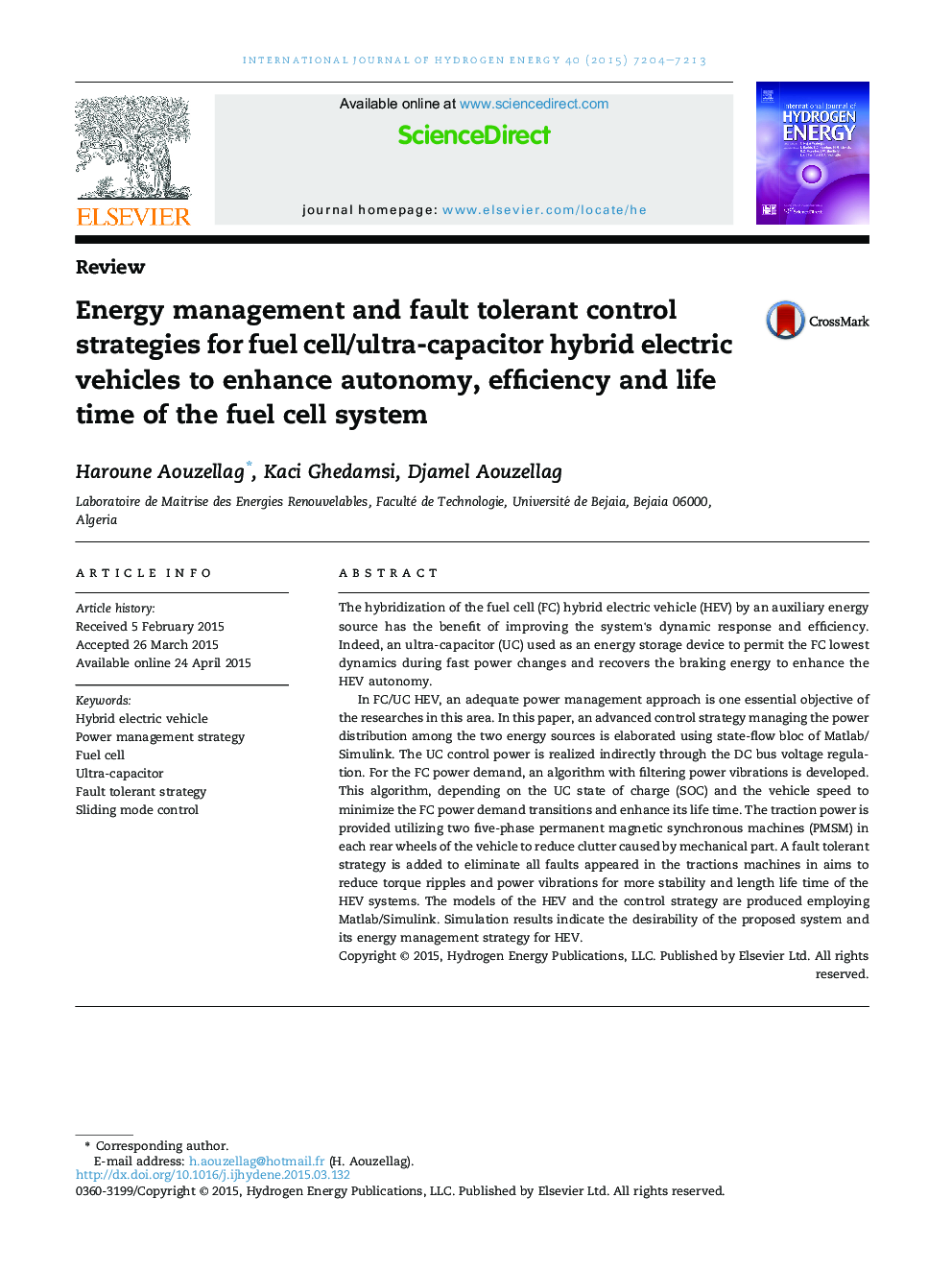| Article ID | Journal | Published Year | Pages | File Type |
|---|---|---|---|---|
| 1279903 | International Journal of Hydrogen Energy | 2015 | 10 Pages |
•Energy management for FC/UC hybrid electric vehicle by taking account speed level and SOC of the ultra-capacitor.•For low power ripple caused by faults in traction machines, we use a fault tolerant control and filter in FC control.•An initiation to ponder if faults appear in the system and how it will be annoying to the life time of the fuel cell.
The hybridization of the fuel cell (FC) hybrid electric vehicle (HEV) by an auxiliary energy source has the benefit of improving the system's dynamic response and efficiency. Indeed, an ultra-capacitor (UC) used as an energy storage device to permit the FC lowest dynamics during fast power changes and recovers the braking energy to enhance the HEV autonomy.In FC/UC HEV, an adequate power management approach is one essential objective of the researches in this area. In this paper, an advanced control strategy managing the power distribution among the two energy sources is elaborated using state-flow bloc of Matlab/Simulink. The UC control power is realized indirectly through the DC bus voltage regulation. For the FC power demand, an algorithm with filtering power vibrations is developed. This algorithm, depending on the UC state of charge (SOC) and the vehicle speed to minimize the FC power demand transitions and enhance its life time. The traction power is provided utilizing two five-phase permanent magnetic synchronous machines (PMSM) in each rear wheels of the vehicle to reduce clutter caused by mechanical part. A fault tolerant strategy is added to eliminate all faults appeared in the tractions machines in aims to reduce torque ripples and power vibrations for more stability and length life time of the HEV systems. The models of the HEV and the control strategy are produced employing Matlab/Simulink. Simulation results indicate the desirability of the proposed system and its energy management strategy for HEV.
